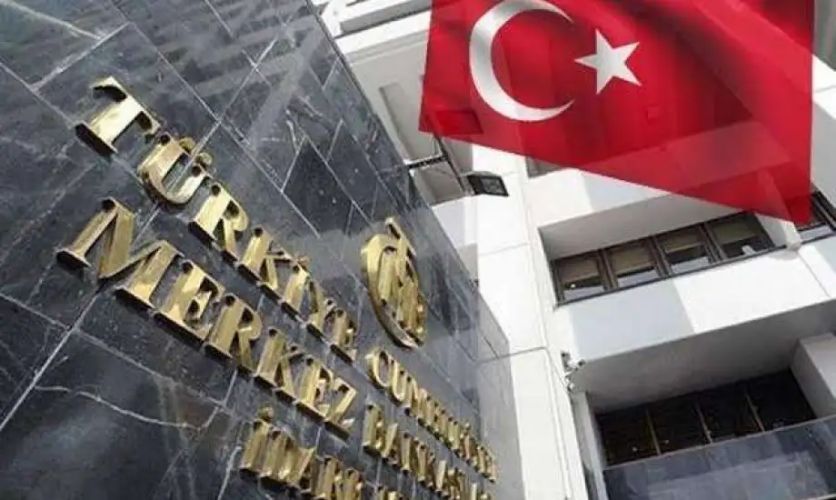
-
Published: 02 July 2023

The foreign currency and finance crisis that is going through Turkey goes far beyond the actions of Turkish domestic policy, which Turkish President Recep Tayyip Erdogan was counting on in his fiery speeches that play a chord of patriotism that the Turkish people have long responded to, and that crisis also affects international economic relations
Edited by |ANNA sam
Economic section - CJ journalist
Ankara – July,2,2023
Over the past few days, the council on Foreign Relations (CFR), one of the most prominent think tanks in the United States, has published a comprehensive assessment indicating that Turkey is heading towards a foreign currency crisis due to the depletion of foreign currency reserves in the Turkish central bank.
The report said that Turkey is facing the risk of a traditional balance of payments crisis.
Unfortunately, this will make Ankara powerless at the table in the face of countries that will conclude loan agreements, so reducing its foreign exchange reserves will lead to a widening gap between its imports and exports.
The public debt is not high, but the central bank borrowed a significant amount of foreign currency from Turkish banks and other countries, for Ankara to spend what it lent in defense of the Turkish lira.
Now a financial crisis could happen worse than a record financial crisis the country has experienced, especially after Turkish banks lent the central bank so much money that if people want to get their deposits back, the government will not be able to do it.
In addition to the crisis of foreign currency reserves, Turkey is also facing the risk of a financial crisis due to the need for external financing. Here it is indicated that the trade deficit in 2021 was less than 20 billion dollars, and it seems that by the end of 2023 it will reach 60 billion dollars.
There is no indication in the trade data that the gap between imports and exports will automatically narrow, the increase in imports is still higher than in exports. The external deficit can be covered either by borrowing from abroad or by selling current assets.
However, news reports indicate that efforts are being made to sell some government institutions of commercial value at the international level. Unfortunately, Turkey cannot get the external financing as much as it wants because of these domino effect-like problems.
While the base interest rate is 8.5 percent, the inflation rate exceeds 40 percent (this is according to official data, but according to unofficial data it is much higher). Foreign investors do not want to hold their assets in Turkish lira in an environment where interest rates on the local currency remain artificially low and there is a clear risk of losing its value.
The support provided by the Gulf States is still insufficient. The result is an external deficit that exceeds the financing capacity of the market, which leads directly to the second problem of Turkey... Its foreign currency reserves are running out, and already the external deficit for 2023 has been largely financed by the sale of reserves.
The balance of payments data show that despite the inflow of six billion dollars in the first quarter of the year, there is still a decrease of 14 billion dollars.
It is true that the Central Bank of Turkey borrowed more than 10 billion dollars from abroad, but the reserves decreased by 30 billion dollars on an annual basis.
Currently, Turkey has 48 billion dollars of foreign reserves and 50 billion dollars of gold, however, not all of the 48 billion dollars of foreign reserves are available for use, 19 billion dollars are swap agreements with Qatar and the United Arab Emirates.
Thus, Turkey keeps a large part of its reserves in Qatari riyals and UAE dirhams, both of which are pegged to the dollar, which means that the real foreign reserve is currently close to 30 billion dollars. This does not mean a lot of reserves for an economy with a current account deficit of 60 billion dollars and since the beginning of the year has been selling more than five billion dollars a month to the market to maintain the stability of the Turkish lira.
Depending on the speed of the sale of reserves in the next few weeks, and depending on the size and composition of the last financial tranche provided by the Arab Gulf countries, usable reserves may run out sometime this summer.
The volume of foreign currency borrowed by the Turkish central bank locally is 130 billion dollars. He has received USD 20 billion in deposits from abroad (USD 20 billion swaps with the Gulf), so the total foreign currency liabilities of the bank are about USD 150 billion, while he has only USD 30 billion.
The result... There is a 30 percent contraction since the election and the Turkish people have not noticed it. It was a fairly subtle contraction. The opposition is still busy with its internal problems at the moment, due to its failure in the elections
On the other hand, the masses are distracted that hot money will come from tourism, but the fact is that by the end of summer inflation waves are approaching Turkey.
And who knows maybe Recep Tayyip Erdogan does not want the economy to improve much dramatically, because in this way he may want to keep the people stable by making them dependent on his person and the handouts that the government will provide.
{source}<script async src="https://pagead2.googlesyndication.com/pagead/js/adsbygoogle.js?client=ca-pub-4474625449481215"
crossorigin="anonymous"></script>
<!-- moss test ad -->
<ins class="adsbygoogle"
style="display:block"
data-ad-client="ca-pub-4474625449481215"
data-ad-slot="6499882985"
data-ad-format="auto"
data-full-width-responsive="true"></ins>
<script>
(adsbygoogle = window.adsbygoogle || []).push({});
</script>{/source}
